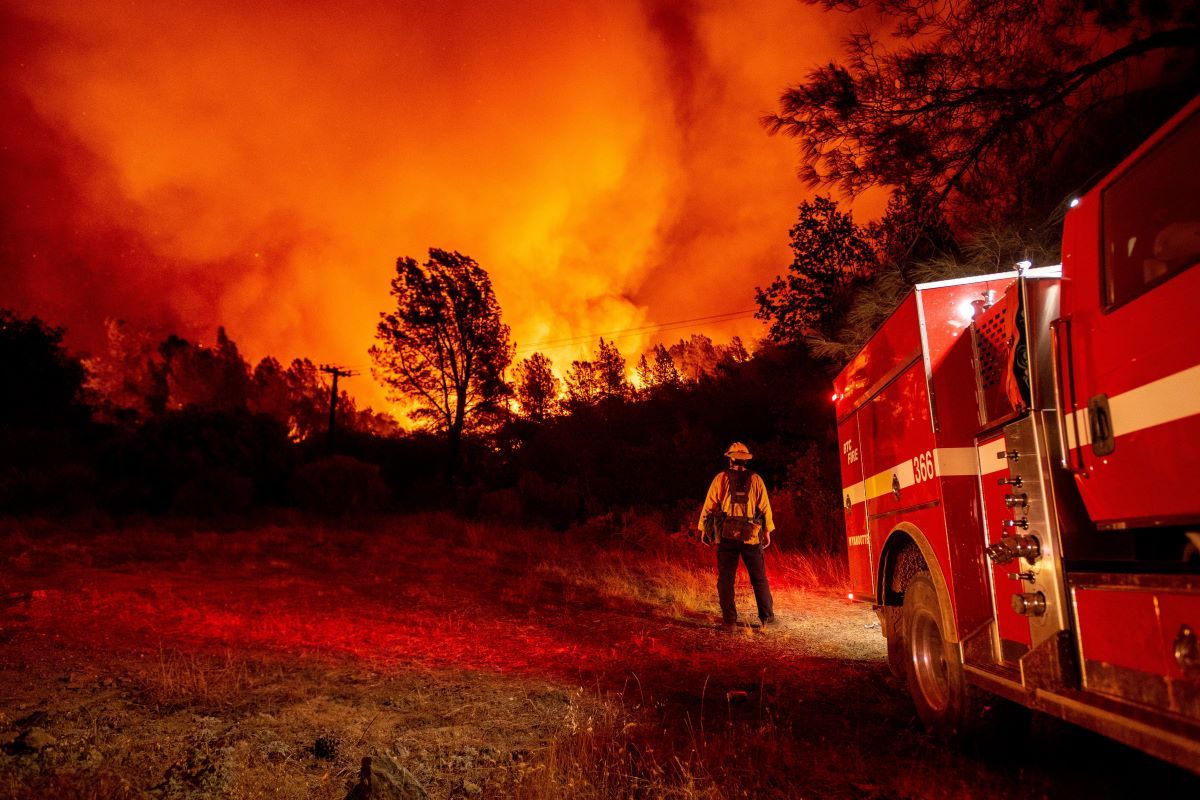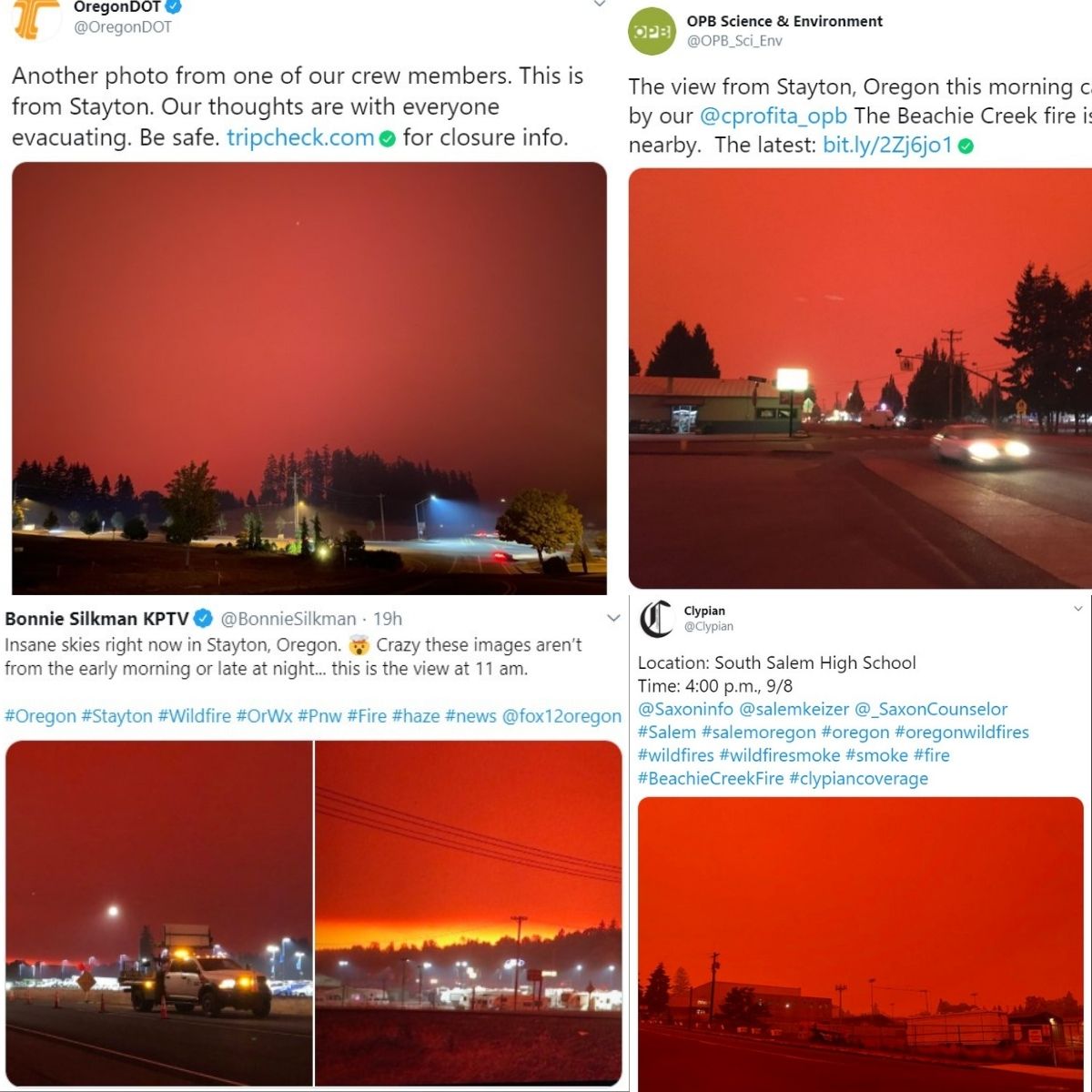In September 2020, a series of wildfires raged across the Pacific Northwest, burning thousands of acres of land and forcing hundreds to evacuate their homes.
Oregon Live reported:
Gov. Kate Brown on Tuesday declared a wildfire emergency in Oregon, where fire in the Santiam Canyon east of Salem forced evacuations and wildfires elsewhere burned through at least two towns and sent thick smoke across the western part of the state.
Brown -- along with health, fire, forestry and emergency officials -- addressed the magnitude of the situation during a midafternoon news conference.
“This is proving to be an unprecedented and significant fire event for our state,” Brown said.
As the fires burned, several photographs supposedly showing a blood-red sky over Oregon were posted to social media. One picture posted to Reddit, for example, was accompanied by the caption: "Oregon wildfires making it look straight apocalyptic."
The Reddit user who shared this picture, RavenRosie, wrote in the comments that the photograph was taken in Sublimity, Oregon, and no filters were used to create it.
Although the scene depicted above may seem unbelievable, several other photographs and videos were posted to social media showing a similar blood-red atmosphere.
In addition to social media posts from anonymous users, a number of authoritative sources have also shared similar images of Oregon's red skies.
Cassandra Profita, an environmental reporter for Oregon Public Broadcasting, Bonnie Skillman, a reporter for Portland, Oregon, news channel KPTV, the Oregon Department of Transportation, Clypian, a student newspaper from South Salem High School, and the Oregon State Police Department all shared similar images of the surreal skies in Oregon:
In August 2020, as Colorado dealt with forest fires, Oklahoma-based meteorologist Daphne Thompson explained to Colorado Public Radio why fires, like sunsets, accentuates the color red.
Think about that old mnemonic device for the colors of the rainbow, ROYGBIV — red, orange, yellow, green, blue, indigo and violet. The red and orange waves are on longer wavelengths, while the blues and violets are on shorter ones, Thompson said.
Sunsets already feature those longer wavelengths, which is why those reds and oranges reach your eye. Wildfire smoke only accentuates that effect.
"The thing with wildfires is that the smoke puts a lot of extra particles up in the atmosphere. So now we're getting the red scattering over even more of those particles, and you can get some amazing red sunsets during wildfires," Thompson said.
NASA provided a similar explanation in 2015:
The smoke particles from the fires allow sunlight's longer wavelength colors like red and orange to get through while blocking the shorter wavelengths of yellow, blue and green. Those longer wavelengths give the sky a red or orange tinted appearance. Similarly, during sunrise and sunset times when the sun is near the horizon, sunlight has to travel through more of Earth's atmosphere to get to you. The additional atmosphere filters out the shorter wavelengths and allows the longer wavelengths to get through, providing reds and oranges during those times.


